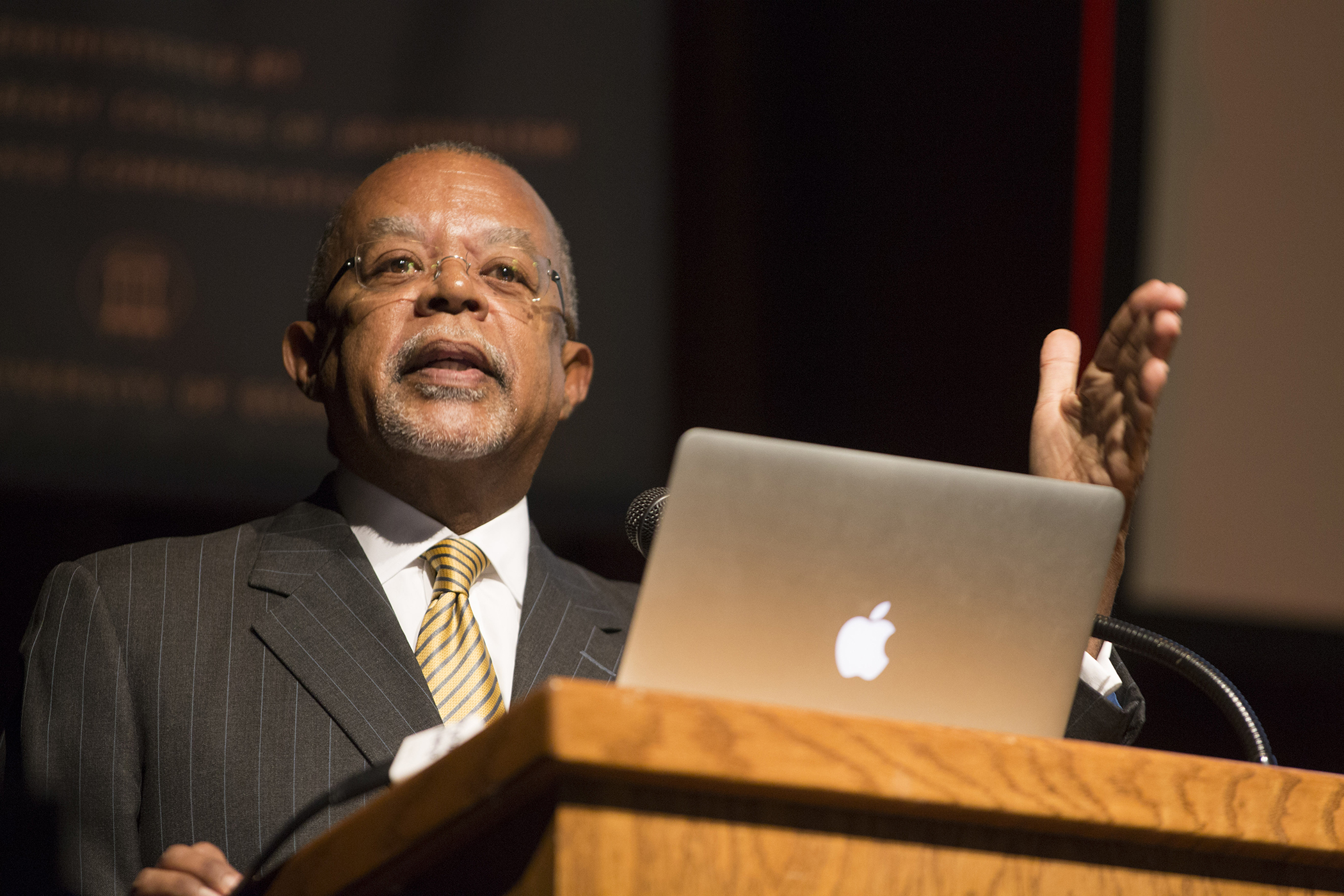Henry Louis Gates Jr., the Peabody Award-winning historian, TV personality and Harvard University professor, weaved his personal story about the surprising discovery of his ancestral roots to demonstrate the power of the interdisciplinary study of genealogy at the 2015 Peabody-Smithgall Lecture.
Gates is creator of TV documentaries The African Americans: Many Rivers to Cross, which won a Peabody Award, and Finding Your Roots on PBS.
Mixing science and history with humorous anecdotes, Gates described how a childhood curiosity in his family tree led to a successful turn making TV documentaries about genealogy, while speaking at the historic Morton Theatre in downtown Athens Oct. 26.
Gates, an African-American and descendant of slaves, would discover that nearly half of his genetic makeup was European—about 50 percent was African and less than 1 percent was Native American.
Gates first was introduced to genealogy after the death of his grandfather, who was the son of a former slave. Gates recalls that his grandfather’s skin was white, which got him thinking about where he had come from.
“I was obsessed with my own family tree,” said Gates, who first interviewed his parents about his lineage when he was 9.
Later as an adult, Gates learned he could trace his ancestors through public records and DNA testing. After that, he came up with the idea of the documentary miniseries African American Lives, which dug into the genealogy of prominent African-Americans like Oprah Winfrey, Quincy Jones and Maya Angelou. The popularity of that show led to his weekly TV genealogy documentary Finding Your Roots, which examines the ancestry of prominent Americans like comedian Tina Fey, journalist Anderson Cooper and U.S. Congressman John Lewis.
Near the end of his lecture at the Morton Theatre, Gates announced plans to test a genealogy-based curriculum in inner-city schools as a way to engage students in science, history and research.
Students would work on projects based on building their own family tree. Gates is betting that students will be able to identify with the personal nature of the project.
“Ancestry training is about finding yourself,” Gates said. “And what is everyone’s favorite subject? Yourself.”


